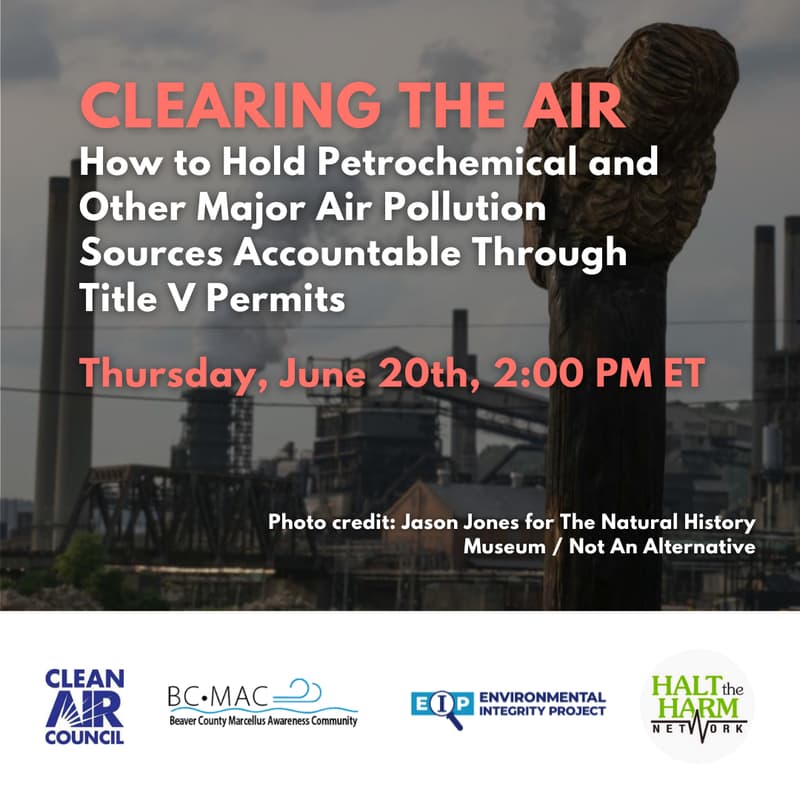

Clearing the Air: How to Hold Petrochemical and Other Major Air Pollution Sources Accountable Through Title V Permits
Did you know that most major polluting petrochemical facilities are required to obtain Title V permits under the federal Clean Air Act? These permits are crucial to detecting violations and enforcing air pollution limits at these facilities and other major air pollution sources.
Title V permits present an important opportunity for grassroots leaders to organize to hold polluting facilities accountable to federal clean air standards and for communities to demand to know what is in the air they breathe.
To help grassroots leaders organize around Title V permits, in this webinar we’ll explain the permitting process and potential strategies you can use to strengthen the protections, or receive them in the first place. You’ll learn the basic elements to look for in Title V permit applications, how to get your EPA regional office involved in challenging inadequate permits, and when and how to engage in the process. We’ll also discuss how to check whether facilities that should have title V permits in fact have them.
During the presentations, we’ll be drawing on examples of successful campaigns around Title V permits for steel facilities and how they apply to challenging petrochemical facilities.
Federal law requires agencies issuing Title V permits to have a public comment period, but the technical nature of the permits and the lack of transparency around the process can be a barrier to public participation. This lack of public engagement allows agencies to approve error-ridden permits with inadequate requirements that make it impossible to enforce emission limits. Many existing facilities are even operating without any Title V permit despite federal requirements.
Speakers:
Hilary Flint, Beaver County Marcellus Awareness Community
Annie Fox, Clean Air Council
Lisa Graves-Marcucci, Environmental Integrity Project
This event is co-hosted by Beaver County Marcellus Awareness Community (BCMAC), Clean Air Council (CAC), Environmental Integrity Project (EIP), and Halt the Harm Network.